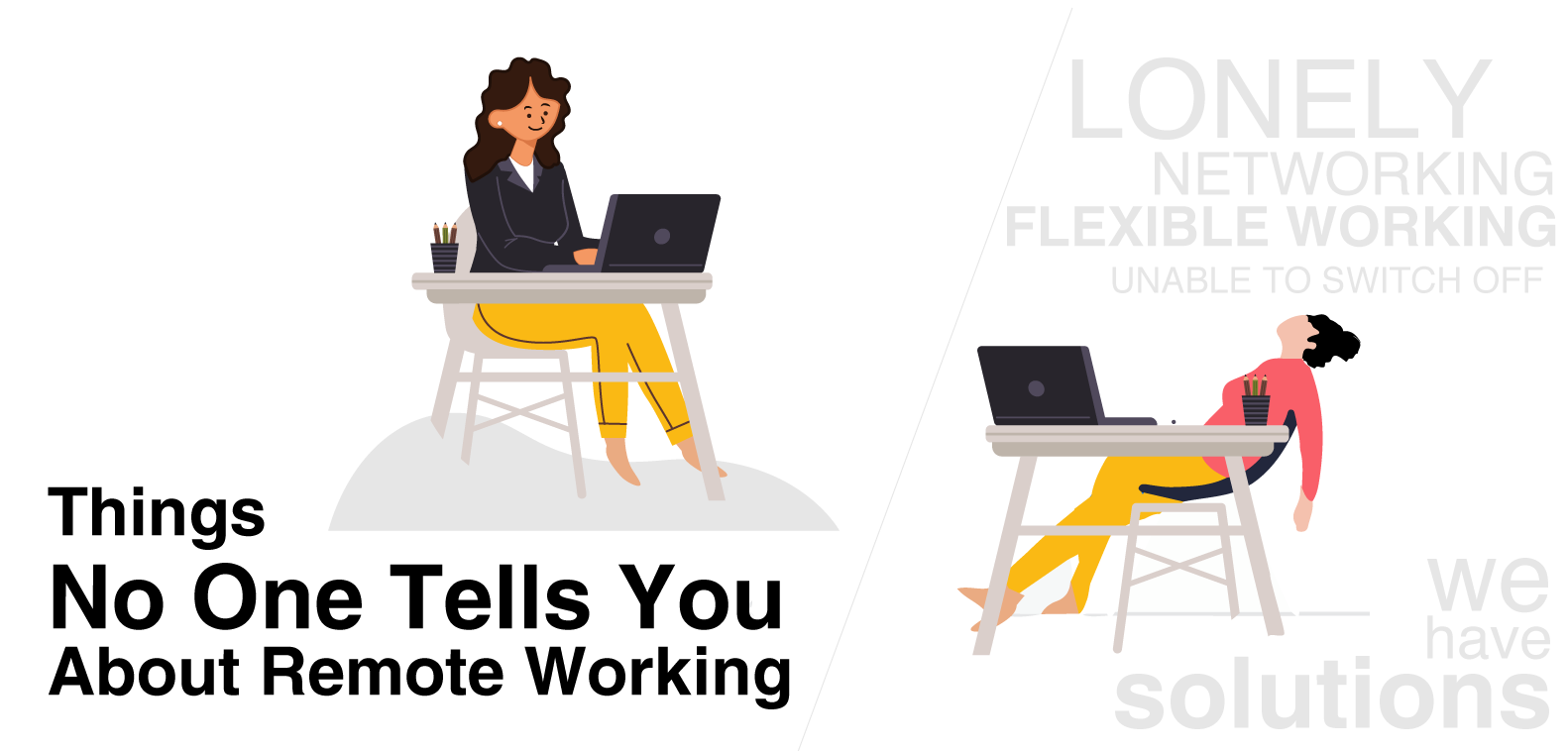Things No One Tells You About Remote Working
If you have ever been stuck in a metro city traffic (and most of us have) delayed on your way to work, chances are you fantasized about working from home someday!
Enter the pandemic and your daydreams have literally come true! But you soon realise this is not everything you thought it would be! The reality doesn’t live up to your expectations!
While you are aching to go back to work to have an ‘ordinary day’, companies are deciding to make remote working a permanent part of their employee offering. Post the pandemic, companies are reporting higher levels of employee retention and engagement, reduced turnover, higher employee satisfaction, increased productivity and autonomy, and lots of other benefits.
On the other hand, there are a lot of benefits for the employee too, including better work/life balance, greater control over the working environment, and flexible daily schedules, and the opportunity to exercise and eat healthy, to name just a few.
But there can be a few drawbacks too:
- It can get lonely: If you are someone who lives alone, sometimes, you might go days before seeing another human being. And if you are an introvert or love your own company, you might revel in this reality (at least at the beginning). But as an extrovert, you might feel left out and lonely straight off the bat. When there is no one else to talk to, you might feel stuck in your own head. There is a reason that isolation is deemed as a punishment. Even in a family set up, you might miss talking or hanging out with your peers and colleagues.
Solution: The beauty of today’s modern world is the easy access to technology. Use technology (slack, internal messengers, and the likes) to stay connected with your peers and teams. You can also form virtual coworking teams or groups so you can get a sense of working together with someone. If you’re starved of a little chit-chat, dig up old friends on Twitter or Facebook, or other social media platforms. You can create a feeling of togetherness or an in-person conversation by opting to use video calls with individuals and groups alike. If nothing else, go for a walk or a run outside so you can see other smiling faces.
- Networking gets harder: When you are working remotely for extended periods of time, the daily work routines are not exactly ripe with opportunities to network or meet new people. You most probably have meetings or calls set up with your teams, regular work colleagues, or clients. When you are a remote worker or a flexible part-time employee, you have to create these opportunities for yourself. Networking gets harder but is not impossible.
Solution: One of the most effective ways of connecting with other professionals and expanding your network is through online platforms like LinkedIn. You can also join professional Slack groups and communities that are relevant to your industry or function. Look for industry leaders or organizations you want to connect with or learn from. Look for their live sessions or pages on various social media handles.
Another way of doing this is to say yes to online events, webinars, conferences, and more. There are also networking specific events you can join.
A different approach would be to look for opportunities to chip in or help someone. People want to network with people who can help them or add real value.
- Unable to switch off: In a remote working environment, you don't have interruptions of ad hoc meetings and co-workers dropping in at your desk. But on the flip side, you are expected to be available for longer hours and might be unable to switch off. Remote workers often struggle with the ‘always at work’ feeling, as they’re forever in their place of work, and the home-work balance can start to blend as the lines blur. Sometimes, these misled expectations can lead to misunderstandings and a potential burnout.
Solution: Be sure that you understand everything that’s expected of you as a remote worker and set clear expectations – including hours and availability. Create a designated workspace and walk away from it when you take a break or are done for the day. Learn to be assertive but polite. Taking a few calls after hours is okay but you do not have to be available round the clock.
- Focus on self-learning: When you’re in a brick-and-mortar office, you can overhear useful tips or learn things on the job or have a quick discussion to solve a persisting problem. Peer learning forms an important part of informal learning. You can’t do that as easily when you’re working remotely, so your development is largely in your own hands. you’ll have to be proactive when it comes to learning and honing new skills.
Solution: But you can use this as an opportunity - with everything going digital, now one can learn anything, from anywhere! It is time to discover your organization’s learning platforms or find online courses that are relevant for your role or industry.
You can also choose to be a part of online communities that enable peer learning through conversations. For example, try Clubhouse, an audio-based social network where you can spontaneously jump into voice chat rooms - where people around the world can come together to talk, listen and learn from each other in real-time. You have access to many unlabeled chat rooms of all the people you follow, and you can join to talk or just listen along and meander till you find something that interests you.
- Flexible working is a skill: You need more than just your functional skills to be an effective flexible worker. Working remotely literally means that it all comes down to you. Sometimes, you might have an unproductive morning followed by an early lunch to realise that half of your day has gone by. Or you could choose to work on a report that your boss needs one night before the requested deadline. Then you run the risk of not putting in your best work.
For some, the opportunity to work alone offers a chance to focus and be more productive; however, for many others, it might be harder to stay focused without the watchful eye of a manager or colleagues. As a result, you have to be mindful of your time, how you structure your day, and deliver what is expected.
Solution: As a flexible and remote worker, managing time can be challenging as you may not have regular hours or routines to guide you. This is the downside of being able to flexibly schedule your day. It is important to become a self-starter and create routines that you can rely on; and to be mindful of your time management, scheduling, and being proactive in terms of your deliverables. You may not have anyone policing you to meet your deadlines so the onus is on you!
Though the numbers for remote working in terms of increased productivity and better work-life balance seem encouraging, the pandemic period has been a time of experimentation and learning for many of us and has given us the opportunity to try out new things. Though remote working has its challenges, for the most part, it can offer brilliant opportunities for businesses and employees to adapt to the new normal.
If you are a business looking for experienced talent that has honed the skill of flexible working, then do reach out to us for your requirements.


